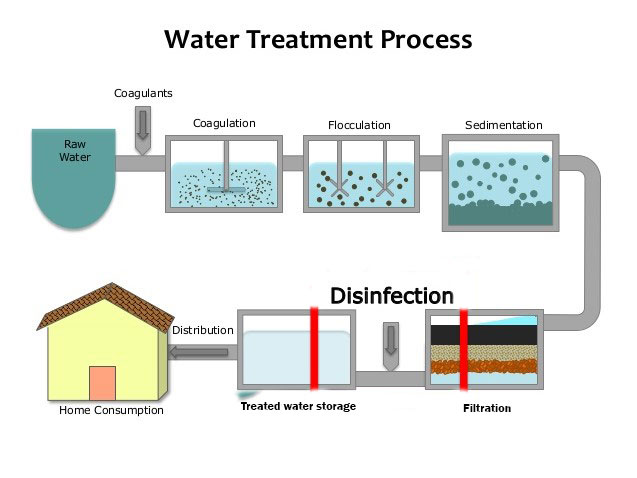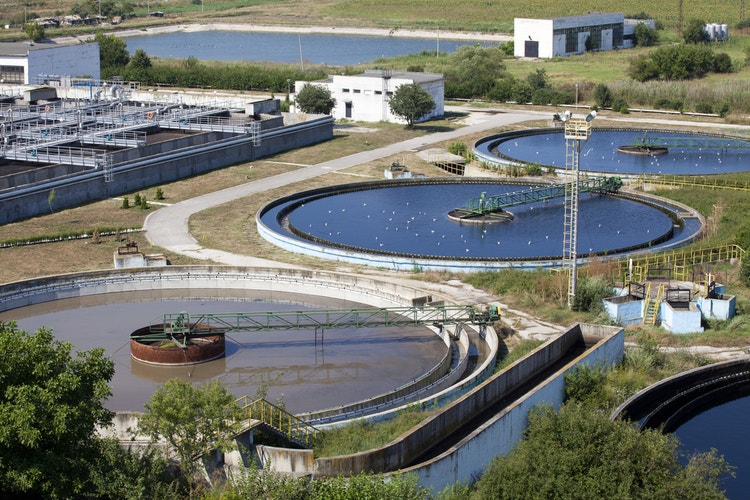Exploring Water Technology Startups: How They Change Lasting Solutions
Water Technology startups are becoming important players in the mission for sustainable remedies to international water concerns. These business take advantage of innovative technologies to boost water effectiveness and administration. Their contributions address pushing challenges such as deficiency and contamination. In spite of their possibility, they face numerous barriers that might affect their success. Comprehending these characteristics clarifies the future of water sustainability and the function these startups might play in forming it.
The Importance of Water Technology in Today's World
As worldwide water scarcity magnifies, the importance of water Technology comes to be increasingly evident. Water Technology plays a critical duty in resolving the challenges positioned by increasing and diminishing fresh water resources need. It includes a wide variety of innovations, including sophisticated filtering systems, wastewater treatment innovations, and wise watering solutions. These innovations not just boost the efficiency of water use yet likewise promote sustainable methods across different industries, consisting of agriculture, sector, and metropolitan growth.
Additionally, the significance of water Technology extends beyond resource administration. It promotes durability versus environment adjustment influences, such as floodings and dry spells, by giving flexible services for water preservation and monitoring. Furthermore, it supports public wellness by ensuring access to risk-free and tidy alcohol consumption water. As the globe deals with growing water-related difficulties, the integration of cutting-edge water modern technologies is crucial for fostering sustainable development and safeguarding water availability for future generations.
Innovative Solutions From Water Technology Startups
While conventional techniques to water monitoring have actually offered their objective, a brand-new wave of water tech start-ups is changing the sector with cutting-edge services (Water Technology Startups). These business utilize innovative modern technologies to address pushing water problems, such as deficiency, contamination, and inefficient circulation. Numerous startups utilize expert system and artificial intelligence to optimize water usage and anticipate demand, leading to more sustainable techniques
Additionally, numerous firms focus on creating sophisticated filtering systems that eliminate toxins and make water risk-free for consumption. Others discover decentralized water treatment technologies, enabling communities to manage their water sources better. Some startups are pioneering clever irrigation remedies that decrease water waste in farming, promoting ecological preservation.
Instance Studies: Effective Water Technology Startups
Various water Technology start-ups have emerged as leaders in resolving global water challenges via ingenious strategies. One significant instance is Xylem, which concentrates on water analytics and wise framework to enhance water use and decrease waste. Their solutions have actually been applied in numerous municipalities, demonstrating significant renovations in water monitoring efficiency.
One more successful startup, Absolutely no Mass Water, has created solar-powered hydropanels that extract water vapor from the air, offering lasting drinking water in deserts. Water Technology Startups. This Technology has been deployed in several countries, making certain communities have accessibility to clean water
AquaVenture Holdings operates a diverse portfolio of water-as-a-service solutions, addressing water scarcity via desalination and wastewater treatment. Their projects have actually shown essential in regions facing serious water scarcities, showcasing the potential of innovative water modern technologies to develop long lasting, positive influences. These study highlight the transformative capacity of start-ups in the water Technology field.
The Role of Smart Technology in Water Monitoring
Smart Technology plays a crucial duty in contemporary water monitoring by leveraging IoT applications to enhance source usage. Data analytics enhances efficiency by providing workable understandings, while remote surveillance services allow real-time oversight of water supply. Together, these innovations change just how water is handled, promoting sustainability and operational efficiency.
IoT Applications in Water
As water scarcity and management obstacles increase globally, the assimilation of Net of Things (IoT) applications has actually emerged as an essential option in maximizing water sources. IoT Technology assists in real-time surveillance and analysis of water systems, making it possible for more reliable use and management. Sensing units released in numerous water infrastructures can track top quality, circulation prices, and leakage, supplying important information to stakeholders. This information encourages utilities and consumers to make enlightened choices, reducing waste and boosting preservation initiatives. Furthermore, wise irrigation systems utilize IoT to optimize water delivery for farming, ensuring that plants receive the right amount of water at the appropriate time. In general, IoT applications are transforming standard water management practices, promoting sustainability and strength in water source systems.
Data Analytics for Performance
Using information analytics is vital for boosting effectiveness in water monitoring. Water Technology start-ups are progressively making use of innovative analytics to maximize resource allotment and decrease waste. By analyzing information from various resources, these start-ups can determine patterns and fads that notify much better decision-making. As an example, anticipating analytics can forecast water demand, allowing energies to adjust supply accordingly, consequently reducing excess and shortages. Furthermore, real-time data processing allows the prompt discovery of leakages and inefficiencies within distribution systems, considerably lowering functional prices. Moreover, data-driven understandings empower stakeholders to execute targeted preservation strategies, fostering lasting techniques. Fundamentally, integrating data analytics into water administration not only enhances procedures yet also advertises lasting sustainability in water resource usage.
Remote Monitoring Solutions
While standard water management systems commonly fight with inefficiencies, remote tracking options are transforming just how water resources are handled. These cutting-edge modern technologies enable real-time data collection and evaluation, allowing stakeholders to keep an eye on water top quality, flow rates, and use patterns from afar. Utilizing sensors and IoT tools, remote monitoring offers prompt understandings that help with positive decision-making. This change not only improves operational efficiency yet likewise advertises sustainability by lowering water waste and enhancing source allotment. Additionally, remote surveillance systems can determine potential concerns before they rise, thus decreasing the risk of contamination or framework failure. As water Technology startups remain to develop these remedies, the market is poised for significant advancements in sustainable water administration practices.
Challenges Encountering Water Technology Startups
Water Technology startups run into significant difficulties that can hinder their development and success. Secret problems include safeguarding adequate financing, navigating with intricate governing settings, and competing in a congested industry. These obstacles require tactical planning and technology to get rid of.
Financing and Financial Investment Challenges
Although advancement in water Technology holds tremendous possibility for resolving international challenges, startups in this sector frequently deal with significant financing and investigate this site investment obstacles. Several capitalists remain mindful, regarding the water market as high-risk due to its complex governing landscape and lengthy development timelines. In addition, startups typically battle to demonstrate prompt earnings, which can deter possible backers. Conventional endeavor capital might neglect water modern technology, favoring markets with quicker returns, such as tech or customer items. Securing gives and federal government funding can be time-consuming and competitive, more complicating financial security. Therefore, many ingenious water Technology start-ups find themselves in a ragged edge, calling for imaginative funding techniques to browse these economic barriers and achieve their goals
Regulative Conformity Issues
Guiding regulatory compliance is a considerable difficulty for start-ups in the water Technology field, as they must come Go Here to grips with a myriad of regional, nationwide, and global laws. These regulations frequently include water high quality criteria, ecological defense regulations, and safety protocols, which can vary widely across jurisdictions. Start-ups may find it difficult to navigate this complex landscape, specifically when scaling procedures or entering brand-new markets. The prices associated with conformity can be considerable, diverting resources far from innovation and item development. In addition, delays in obtaining required permits or qualifications can impede development and market entry. As a result, a robust understanding of regulatory frameworks is vital for these start-ups to ensure lasting operations and prevent possible legal consequences.
Market Competition Characteristics
As water Technology start-ups emerge in an affordable landscape, they deal with various challenges that can restrain their growth and advancement. Established firms commonly dominate the marketplace, leveraging sources and experience to keep their positions. Start-ups battle with limited financing, which restricts r & d abilities, making it difficult to complete on Technology and pricing. In addition, the quickly evolving nature of water innovations demands continuous adaptation, additional stressing startup sources. Regulatory obstacles can make complex market entry, as conformity with environmental requirements is critical yet expensive. Bring in proficient talent in a particular niche field provides an additional obstacle, as larger companies might offer more attractive employment packages. These variables create a complex environment for water Technology startups intending to succeed.
The Future of Water Technology and Sustainability

The future of water Technology will likely concentrate on integrating artificial knowledge and information analytics to maximize water circulation and usage patterns. By harnessing real-time information, business can predict scarcities and handle sources a lot more successfully. Furthermore, lasting methods will come to be a foundation of the sector, motivating circular economic situations where water is recycled and treated. Eventually, the ongoing development of water Technology will certainly be important in developing durable frameworks efficient in fulfilling the difficulties postured by climate adjustment and population growth while advertising environmental stewardship.
Often Asked Inquiries
What Are the Key Metrics for Reviewing Water Technology Startups?
Key metrics for examining water Technology start-ups include market capacity, scalability, consumer acquisition expenses, revenue growth, modern technology advancement, regulatory compliance, ecological impact, competitive advantage, and group proficiency, all important for determining long-lasting feasibility and success.
Just How Can Individuals Support Water Technology Innovations?
Individuals can support water Technology hop over to these guys advancements by buying startups, advocating for policy modifications, taking part in area initiatives, sharing knowledge about sustainable methods, and advertising awareness of water concerns via social media and local events.
What Are Typical Financing Resources for Water Technology Startups?
Typical financing resources for water tech startups include financial backing, government grants, crowdfunding platforms, angel financiers, and company collaborations. These monetary opportunities assist assist in advancement and advancement in sustainable water administration modern technologies.

Which Industries Advantage Most From Water Technology Advancements?
Industries such as agriculture, power, production, and municipal services benefit significantly from water Technology improvements. These developments enhance water efficiency, lower prices, and advertise lasting practices, ultimately adding to environmental conservation and source administration.
Are There Any Type Of Regulatory Difficulties Certain to Water Innovation?
Yes, water Technology faces regulative obstacles, consisting of conformity with ecological requirements, permitting procedures, and varying local policies. These complexities can impede development and reduce the execution of brand-new technologies in the water monitoring industry.
Water Technology start-ups are emerging as critical gamers in the quest for lasting solutions to international water issues. As international water scarcity escalates, the significance of water Technology comes to be progressively noticeable. Others check out decentralized water therapy technologies, enabling areas to manage their water sources more successfully. An additional successful startup, Absolutely no Mass Water, has established solar-powered hydropanels that remove water vapor from the air, providing sustainable alcohol consumption water in arid regions. Their tasks have shown crucial in regions facing serious water scarcities, showcasing the potential of innovative water innovations to develop lasting, positive effects.